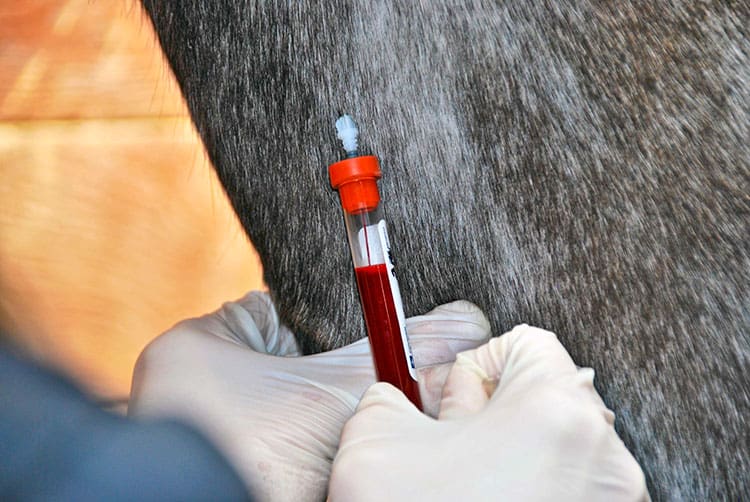Two Alberta Horses Confirmed With EIA

The Athabasca County horse, a mare, had been tested by CFIA because its foal had received non-negative test results for export to the United States. Because of the foal’s age, its disease status can’t be confirmed; however, future testing will be carried out per program policy.
The Parkland County horse, which displayed no clinical signs of EIA, had been tested by request of its owner to fulfill requirements for export to the U.S. The horse had recently been purchased at an auction in Alberta.
CFIA is investigating and quarantine protocols have been enacted on the infected horses and any horses on their premises that might have been exposed. Quarantines will remain in effect until all disease response activities are complete, including follow-up testing and humane euthanasia of confirmed cases.
Trace-out procedures might result in CFIA acting at other premises as policies require. CFIA has strongly recommended enhanced biosecurity measures to owners to prevent the spread of EIA and protect Canada’s national herd.
About EIA
Equine infectious anemia is a viral disease that attacks horses’ immune systems. The virus is transmitted through the exchange of body fluids from an infected to an uninfected animal, often by blood-feeding insects such as horseflies. It can also be transmitted through the use of blood-contaminated instruments or needles.
A Coggins test screens horses’ blood for antibodies that are indicative of the presence of the EIA virus. Most U.S. states require horses to have proof of a negative Coggins test to travel across state lines.
Once an animal is infected with EIA, it is infected for life and can be a reservoir for the spread of disease. Not all horses show signs of disease, but those that do can exhibit:
- Progressive condition loss;
- Muscle weakness;
- Poor stamina;
- Fever;
- Depression; and
- Anemia.
EIA has no vaccine and no cure. A horse diagnosed with the disease dies, is euthanized, or must be placed under extremely strict quarantine conditions (at least 200 yards away from unaffected equids) for the rest of his life.
Written by:
Edited Press Release
Related Articles
Stay on top of the most recent Horse Health news with















